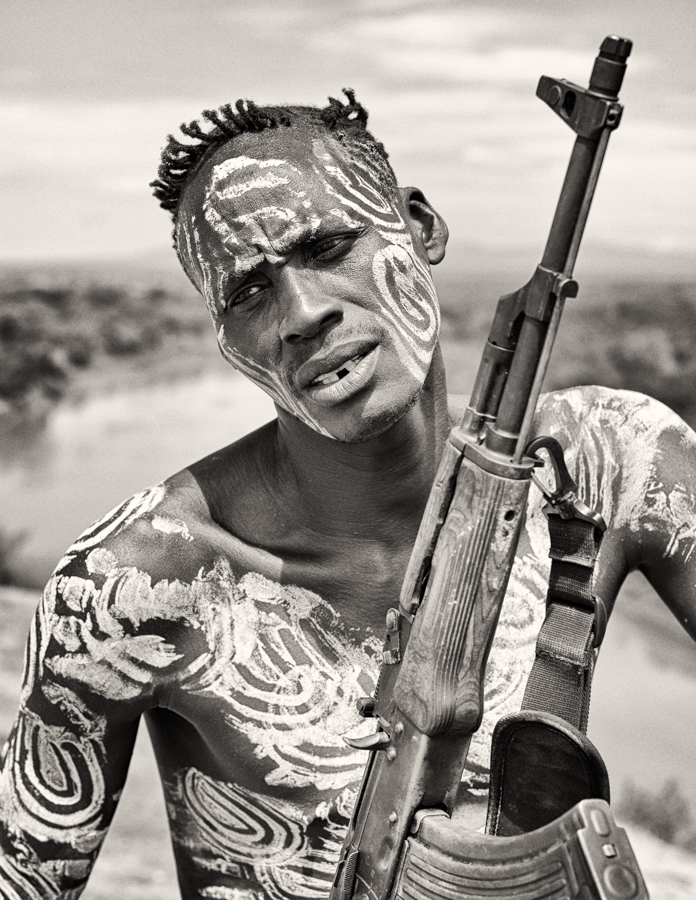ENTRY DESCRIPTION
Nowhere in Africa is more remote than the valley of the lower Omo river in the far south-west of Ethiopia. An area that is isolated by mountains to the north, swamps to the west and deserts to the south, the lower Omo is the world’s last great tribal stronghold. Untouched by colonialism, largely ungoverned, the valley is a vast elongated basin occupied by around 16 tribes, totalling some 220,000 people. I took this photo of one of the tribal leaders of the Kara tribe, one of the smaller tribes of around 1500 people based on the eastern banks of the omo river. These peoples lives have remained unchanged for hundreds of years until recently where their traditions and livelihoods have become increasingly threatened. Exposure to an influx of tourists desiring photographs has encouraged what reeks of exploitation, as money is solicited in exchange for a photo. This, plus an increasing loss of native lands as the government snatch up large swathes for new agricultural developments has led to immense stress on their livelihoods. These people are no longer innocent in the face of a changing world. The hand made weapons used for hunting have long ago been replaced by Russian Kalashnikovs, remnants of the Mengistu reign in the 1990s and ongoing conflict in Sudan and Somalia. They ride out at dawn to the markets on motorbikes, adorned in body paint whilst also wearing football shirts from far away international teams. The mix of vulnerability and immense strength in this mans eyes reminds me that there is something deeply upsetting in witnessing the loss of innocence and here, deep in the Omo valley, the ancient Kara people are balanced on a razor's edge between the past that has defined them and a future that is yet to reveal itself.
AUTHOR
Born in New York, Dorrie McVeigh’s family emigrated to the UK in the late 70's. The impact of that move has been pivotal to her work as she looks into how our past can influence our sense of identity and belonging. Mcveigh has traveled extensively in her life, perhaps always searching for her own allegorical "homeland" and eventually in a perhaps hereditary act, unrooted her own children to make a new life in Marseille. In a recent exhibition, Mcveigh writes on this experience: “In our homeland, we are essentially held together by the fabric of friendships that have been forged by time and the common thread that these friendships and our extended family embody. When we leave this we are set afloat, there is huge freedom but simultaneously we are unrooted and there is an inevitable loss in this act. Furthermore, the struggle to untangle and reform the complex narrative that makes up one's internal identity is no easy task.
Mcveigh has had several international solo shows and her latest series of powerful landscapes “Nowhere but Now” have been selected for the LensCulture Emerging Talent Awards 2017 Competition Gallery. In 2018 she will be exhibiting her series "On the Beach at Fontana", a series that connects poetry with photography, at the Dou Bochi Gallery during Les Rencontres d'Arles.
back to gallery
